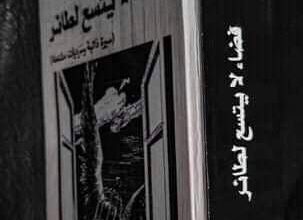The Thursday Market and the Madman

Yemeni mp
Ahmed Saif Hashed
In our childhood, we eagerly awaited Thursday. If fate had granted us the ability to wish for what we desired, we would have asked for every day to be an unending Thursday.
Joy enveloped us as we visited the Thursday market. We anticipated it with eager anticipation. For us children, this market resembled a vibrant bazaar or a joyous carnival. Thursday was a bright and special day of the week; without it, our days would have merged into a monotonous blur. Thursdays were the jewels of our days, the delightful interludes that marked the passage of time. The days ahead and those behind held no meaning without Thursday. It was our beautiful respite, where we encountered sights and sounds unseen and unheard on other days.
The roar and clamor distinguished this place and its joyous day. It was the gathering spot for people who flocked from all directions. They traveled great distances, braved challenging terrains, and defied boundaries to converge at the Thursday market. With eagerness and longing, they greeted one another, engaging in warm and heartfelt conversations.
The center of the market bustles with visitors, its edges stretching out in a wave of humanity and goods. There’s a vibrant life within, where buying and selling thrive. You can hear the roar and murmurs of the market long before you even arrive. A cacophony of noise, activity, and relentless energy fills the air as people buy and sell, talk and laugh.
Some enjoy breakfast, others sip tea and coffee, while some savor lunch in the bright midday sun. There’s a café run by “Dawlah,” a tall, fair woman with a lovely face enhanced by her tattoos. The era of strictness had not yet arrived in our villages; women walked without veils, and modesty, innocence, and kindness prevailed without fear of embarrassment or harassment, free from anything that might tarnish purity and life.
In the Thursday market, there was a café owned by “Rukez,” a kindly, smiling man who radiated warmth and comfort. The food he prepared was highly sought after, and his coffee uplifted spirits and brightened moods. Alongside him was Hamid, a gentle, impoverished man selling cold water and sour lemons, calling out in his melodious voice, “Banihis… Banihis.
Many in the market announced and promoted their goods, and sometimes a “mudir” would take a high spot to broadcast news of celebrations and events that mattered to the community. All these kind people have vanished, and today we find ourselves as victims, scattered and torn apart after seven years of war. Seven years in the presence of ruin, destruction, and blood, surrounded by scoundrels, thieves, criminals, and corrupt individuals. Oh, how beautiful those days were, and how kind its people.
* * *
For the children who frequented the market, Thursdays were joyous festivals. Yet, one such Thursday for me was marked by anger and conflict. There was the madman Ali Abdullah Naif, known among the children as “Al-Awlaqiah.” He was famous for sudden fits of anxiety and nervous tension, a burst of agitation that would strike him unexpectedly, often accompanied by aggression, releasing a surge of anger and frustration. His outbursts were laced with curse words, always invoking the name “Al-Awlaqiah.
I truly do not know the significance of “Al-Awlaqiah” in the life of this madman! What connection did he have to earn such a name? “Al-Awlaqia” remains an enigma in the life of this man, burdened with psychological and nervous afflictions, a kind of madness.
I remembered this while reading Najeeb Mahfoud’s story “Whispers of Madness,” written in the 1930s, where he immerses himself in the subject, seeking to answer the question: What is madness? He begins with, “It seems to be a mysterious state, like life and death; you can know a great deal about it if you observe it from the outside, but the inner essence is a closed secret.
The madman, “Al-Awlaqiah,” represented a source of anxiety and fear for the children in the market. Some would panic upon seeing him, as he sometimes attacked and chased them without reason, especially during his episodes, striking any child he encountered and continuing on his way as if indifferent to anyone around him.
At times, he would throw stones and engage in erratic movements, instilling fear in the children. Occasionally, adults would confront him, shouting, “Stop your madness; you’re frightening the children!” I truly do not understand his behavior. Why did this madness seem directed towards children? Had they ever harmed or provoked him in any way? The truth is, I do not know.
* * *
I have a story involving this madman. I cannot recall my age at the time when I was taken by surprise as he pushed through the crowd in the market and struck the back of my head with a powerful blow. I do not know how I was seized by a fit of anger like a “madman.” I wrestled with him while he called for people to intervene, asking, “Whose son is this madman?” Meanwhile, children surrounded us, watching the scene unfold.
“Al-Awlaqiah” began asking about my father, and when they pointed him out—he was well-known in the market—he complained to him, saying,
“You have a mad son. Look what your son has done to me!”
The madman displayed his torn shirt, showing the scratches and marks on his hands and body. However, the children present, including Yaseen Abdulwahab, defended me with a testimony my father had to hear. They declared that “Al-Awlaqiah” had started the confrontation by striking the back of my head. With this testimony, I escaped the severe punishment that awaited me from my father, known for his strictness and swift discipline. From that day forward, it was said that “Al-Awlaqiah” ceased his aggression towards children.
Al-Awlaqiah passed away a few years ago, and it was said that he recovered from his psychological condition before his death. However, other illnesses did not give him much time. I had not seen him for a long while. He left this world quietly. May God grant him mercy.
* * *
Speaking of “Dawlah,” the elegant and beautiful woman we mentioned earlier, I should note that innocence was abundant in those days, and women enjoyed greater freedom. A woman could go to the market and perhaps even buy and sell. The sight of women in black was rare, usually seen only in the beautiful “thobit” before the rise of Wahhabism and the strict Salafi ideologies that came from outside Yemen in the early 1980s.
I still remember my aunt “Sanbula,” mother of Abdu Farid, confronting one of the propagators of strictness in our village at that time. He attempted to greet her with the tips of his fingers, wrapping her in a cloth that hung loosely from his hands, draped around his neck from behind.
She said to him,
“Just yesterday, you were urinating on me! I used to carry you and change you, and today you want to greet me with such formality. I’m like your mother. Where did you get this religion. This was a severe protest against the ingratitude and superficial behavior exhibited by this young man towards a woman of her age and standing. Yet, this ingratitude was masked in the name of religion, which had suffocated the innocence and kindness that once prevailed among people, both men and women.
* * *
“Do you realize what it means for a person to have no place to go?”
Fyodor Dostoevsky






